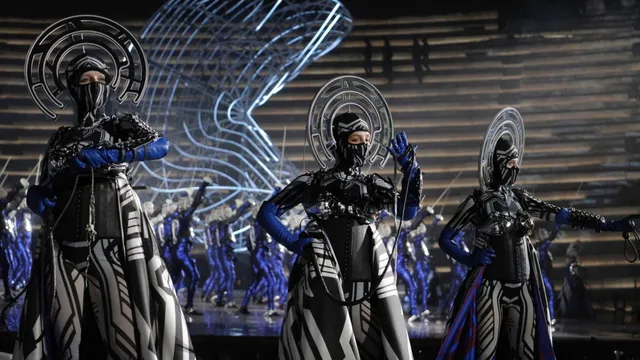
Opera singers collapse on stage amid brutal heatwave
2025-07-02 20:45- Singers at Verona's Roman arena experience heat-related health issues during performances.
- Unions raise concerns about the risks of performing in heavy costumes amidst a heatwave.
- The situation highlights the need for improved safety measures in the performing arts.
Express your sentiment!
Insights
In Italy, an alarming rise in temperatures due to a severe heatwave is affecting performers in the opera scene. Specifically, singers at Verona's iconic Roman arena have been struggling to manage the extreme conditions while wearing heavy costumes and helmets designed for their performances. Reports indicate that some artists have fainted on stage, prompting concerns from unions representing the performers. They argue that the situation is not only unsustainable but poses a genuine health hazard to the singers who are being asked to risk their wellbeing for the sake of entertainment. This incident has evoked comparisons to intense survival situations portrayed in popular media, such as 'Squid Game,' where the stakes are life-threatening. The unions have been vocal in their demands for the opera industry to address these health concerns, advocating for measures that would better protect performers from the oppressive heat. They stress that while the art of opera is significant and must be preserved, the health and safety of the artists should be the top priority. As such, unions are urging theaters and organizers to consider altering performance schedules and perhaps even the locations of these events if temperatures continue to soar. In addition, some have suggested that performances could be adapted to reduce the burden on singers, such as modifying costumes or changing on-stage settings to cooler alternatives. This crisis stems from an ongoing trend of rising global temperatures and extreme weather patterns that many experts attribute to climate change. As weather becomes more unpredictable, the arts community faces new challenges in maintaining performances without compromising health. The situation raises important questions about how industries reliant on live performance can adapt in the face of a changing climate. It calls for a re-evaluation of how conditions are managed in various artistic fields, especially outdoor performances. The incident in Verona has the potential to catalyze more extensive discussions on the necessity of prioritizing safety nets for those in the performing arts, ensuring they are not asked to perform at the cost of their health. As the situation unfolds, it remains to be seen how opera companies will respond to the mounting pressures from unions and the public. The hope is that increased awareness will lead to improved conditions that ensure the safety and well-being of all performers, allowing the rich tradition of opera to thrive without risking the health of those who keep it alive.
Contexts
Climate change has a profound impact on live performances, influencing various aspects of the events, from planning and logistics to audience experience and performer safety. Rising temperatures and shifting weather patterns can affect outdoor venues particularly, leading to increased cancellations or alterations in scheduling. With heat waves becoming more frequent, event organizers must consider the health risks associated with extreme temperatures. Such conditions can result in not only discomfort for attendees but also heat-related health issues for performers and crew members, necessitating new health and safety protocols during rehearsals and performances. Furthermore, unpredictable weather events, such as storms or heavy rainfall, can lead to significant disruptions, requiring contingency plans that may increase operational costs and logistical complexity for organizers. Additionally, climate change contributes to an evolving understanding of sustainability within the live performance industry. As audiences become more environmentally conscious, there is an increasing demand for greener practices in event production. This shift may manifest in various ways, such as the use of renewable energy sources for powering events, reducing waste through recycling programs, and ensuring that materials used in staging are sustainable or eco-friendly. These changes not only cater to audience expectations but also reflect a broader societal response to the urgency of climate action, pushing the industry towards adopting environmentally responsible practices. Moreover, the artists themselves are adapting their performances to reflect the realities of climate change. Many performers are using their platforms to raise awareness about climate issues, infusing their work with themes of environmental urgency and activism. This not only serves to educate audiences but also helps to position artists as advocates for change. Collaborations between artists and environmental organizations are becoming more common, facilitating outreach and engagement with the community to inspire collective action against climate change. In this context, performances evolve from mere entertainment to vehicles for social change, reinforcing the notion that art is intricately intertwined with societal challenges. In conclusion, the effects of climate change on live performances are multifaceted, influencing not only the practical aspects of event production but also the thematic content of the performances themselves. As the industry grapples with these changes, it will need to maintain a balance between delivering engaging experiences and addressing the pressing environmental concerns of our time. Stakeholders in the live performance sector must remain adaptable, adopting innovative solutions and sustainable practices to not only survive but thrive in an increasingly uncertain climate landscape.